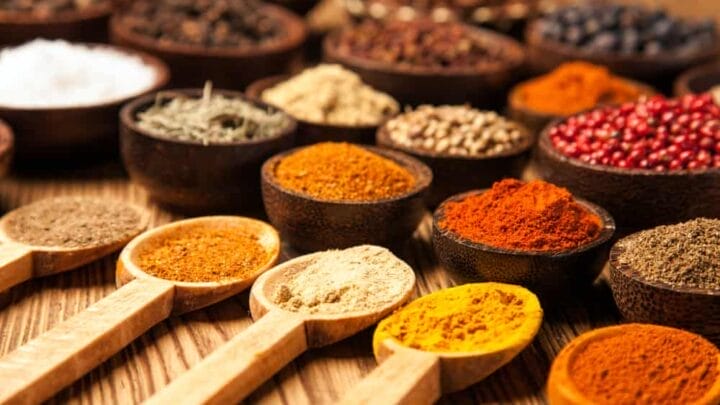
Andropause – causes and ways to relieve symptoms of male menopause
Men who are entering what is known as middle age, that is, over 50, very often notice some disturbing symptoms in themselves. They usually involve three spheres of a man’s life, mental, physical and sexual. If they are not caused by lesions, they may indicate that the body is entering the phase of andropause, or male menopause.
Contents
What do we mean by the term andropause?
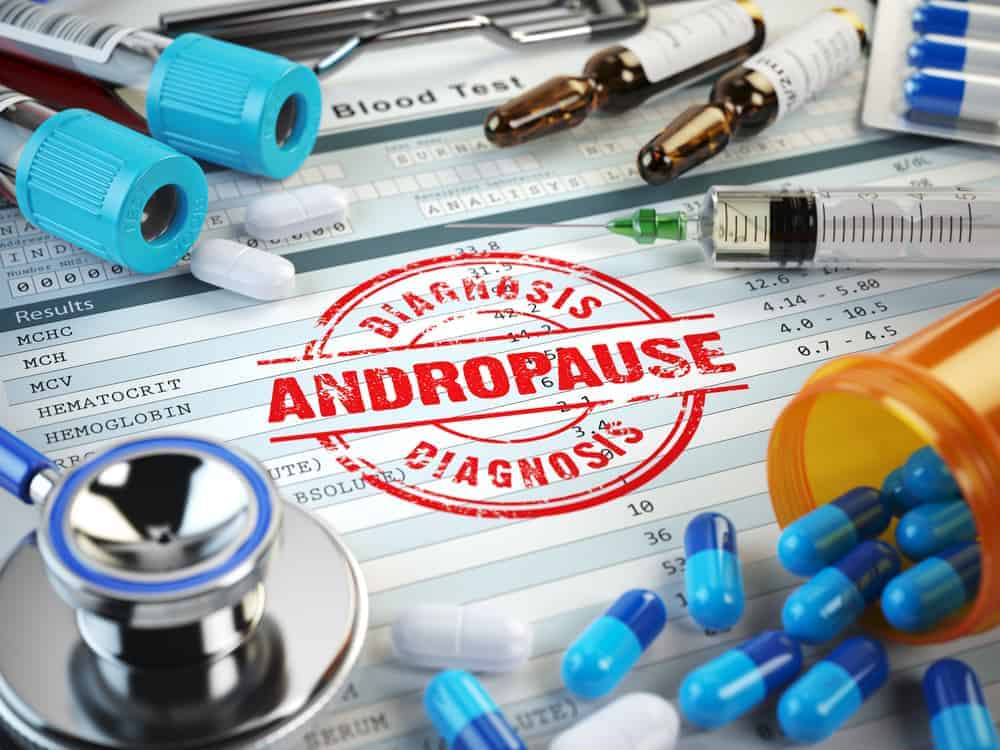
Studies show that nearly half of men over the age of 50-55 are already complaining of andropause-related symptoms. The current, generally accepted definition defines andropause as a period of life when symptoms appear that can be confidently compared to menopause, or menopause in women. This is a completely natural phenomenon, which cannot be prevented, but it is possible to significantly mitigate its course. As a result, you will be able to better endure all the disorders that occur during this period, the deterioration of general health, or the decline in sexual performance and intellectual abilities.
All this simultaneously causes a deterioration in the quality of life, fortunately, this can be effectively counteracted by using natural methods without any side effects. The name andropause itself is a combination of two Greek words, “andros,” meaning male and “pausis”, meaning a break, so it can be said to perfectly reflect this specific condition in a man’s life.
What are the most common causes of andropause?
Before dealing with alleviating the symptoms of male menopause, we should find out what causes them. The primary one, pointed out by specialists in this medical field, is the deficiency of several hormones that appear with age, which are extremely important for the functioning of the male body:
- testosterone;
- dihydrotestosterone (DHT);
- dehydroepiandrosterone (DHEA), known as the “hormone of youth.”
- estrone, another sex hormone;
- growth hormone;
- melatonin.
These are natural causes, but male menopause sometimes occurs earlier than age 50, sometimes we ourselves are guilty of it, leading unhealthy, unhygienic lifestyles. Andropause can be accelerated, and significantly so, by abuse of alcohol and other stimulants, improper eating habits or lack of adequate levels of physical activity. A not insignificant influence is also exerted by the medications taken, primarily those having psychoactive effects.
Which symptoms of andropause cannot be ignored?
However, the timing of the first symptoms of andropause depends on the individual preferences of each body, but in the vast majority of cases they are so characteristic that it is difficult to confuse them with other ailments. Emerging symptoms can be divided into three main groups:
Sexual symptoms
Probably the most important from the point of view of any man who has so far led an active sex life and had no reason to complain about any disturbance of his performance in this particular matter. Unfortunately, the rapidly declining level of male sex hormones takes a decidedly unfavorable toll on it, and the symptoms indicative of this are:
- lowered libido, frequent lack of desire for sex;
- erectile dysfunction, making it difficult or even impossible to have intercourse;
- lower sexual activity than before;
- weaker fertility and, in extreme cases, total infertility.
Somatic symptoms

That is, the entire set of physical discomforts that can accompany male menopause, ranging in severity from mild to almost completely impeding normal functioning. It is the somatic symptoms of andropause that can be mistaken for other conditions, and many men complain at this time of:
- cardiovascular problems, especially difficult-to-regulate hypertension and cardiac arrhythmias;
- muscle, joint and bone pain;
- osteoporosis, a decrease in bone density;
- reduction in the size of the testicles;
- breast enlargement resulting from endocrine dysfunction;
- abdominal obesity;
- violent hot flashes and heavy sweating, symptoms similar to those of female menopause;
- a constant feeling of physical fatigue;
- sleep problems, primarily falling asleep and waking up several times during the night, resulting precisely from decreases in the level of the melatonin responsible for sleep;
- severe headaches and dizziness;
- reduction in skin thickness and increased hair loss;
- hypertrophy of the prostate causing a decrease in sexual performance and difficulty urinating properly;
- slower metabolism causing accumulation of more body fat and weight gain;
- lack of appetite;
- higher insulin resistance in the body, which can become the cause of blood sugar spikes, an increased risk of developing diabetes.
Mental symptoms
Andropause negatively affects not only the physical state of the body, but also mental health, and among the most troublesome symptoms of this background we can include:
- constant feelings of anxiety and restlessness;
- increased nervousness, irritability and explosiveness;
- feelings of sadness and discouragement that can lead to depressive moods;
- rapid mood swings, from sadness to euphoric states;
- poorer memory, concentration and reduced cognitive abilities;
- disruption of diurnal rhythms.
What are the ways to alleviate andropause?
As you can see, the list of andropause symptoms, especially physical ones, is really long, so you need to relieve them effectively in some way. Mostly pharmacological methods are used for this purpose, supplementing, usually in the form of pills, the deficiencies of testosterone and other hormones mentioned above. Unfortunately, not every man can benefit from such hormonal treatment, it carries certain side effects, and there are contraindications to its use.
Men who, for various reasons, cannot benefit from drug therapy, should consider using alternative methods of dealing with andropause, the use of herbs and plants with health-promoting properties. Phytotherapy specialists recommend such herbs and other medicinal plants as:
Fenugreek
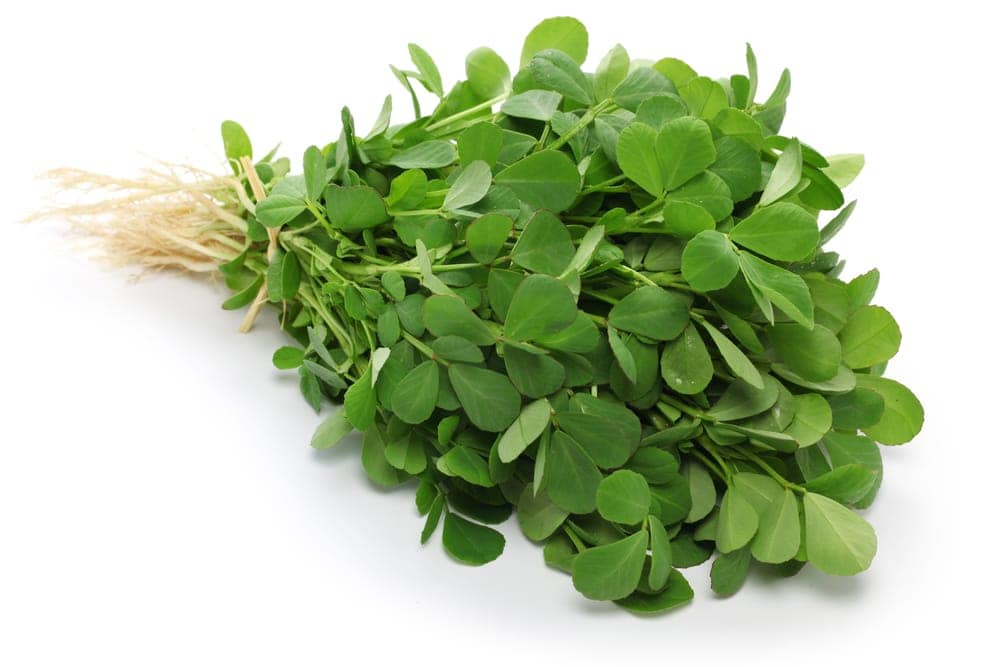
Fenugreek (Trigonella foenum-graecum), is a plant belonging to the large bean family, which has wide-ranging effects effective not only for male menopause. It supports the weakened body multifacetedly, and its medicinal properties are directly linked to its rich composition. Among other things, it contains vitamin A, B vitamins, thiamine (B1), riboflavin (B2), pyridoxine (B6), folic acid (B9), vitamin C, as well as steroidal saponins, flavonoids and numerous minerals, zinc, phosphorus, magnesium, calcium and iron. Thanks to them, it is characterized by its effects:
- alleviating many unpleasant symptoms of andropause;
- reducing levels of sugar, triglycerides and “bad” cholesterol LDL in the blood;
- anti-inflammatory, antibacterial and analgesic;
- improving and accelerating metabolic processes;
- antioxidant, helping to remove pathogenic free radicals from the body;
- regulating the production of sex hormones, primarily raising testosterone levels due to the presence of diosgenin.
Mugwort
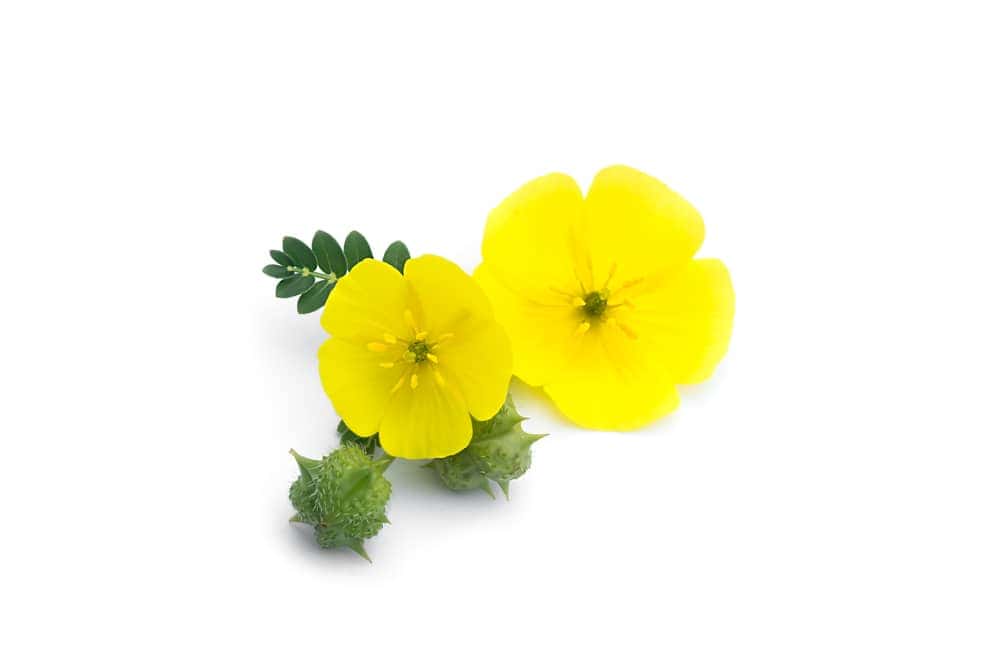
Also known by its Latin name Tribulus terrestris, also used for andropause, effective primarily for its sexual symptoms. Mace features a unique composition full of steroidal saponins, flavonoids, chlorogenic acid and vitamin C, a powerful antioxidant. The action is supported by the minerals, potassium, calcium and iron, together giving it properties:
- strengthening weakened potency and taking it to a whole new level;
- increasing the production and release of nitric oxide, which allows you to achieve a strong and long-lasting erection faster;
- increasing fertility, by increasing sperm count and motility;
- alleviating the negative effects of stress, enhancing the sensation of other symptoms of male menopause;
- enabling more efficient burning of fat cells, thus avoiding overweight and obesity;
- regulating blood pressure that is too high and allowing it to be maintained at a safe, non-threatening level.
Nigella
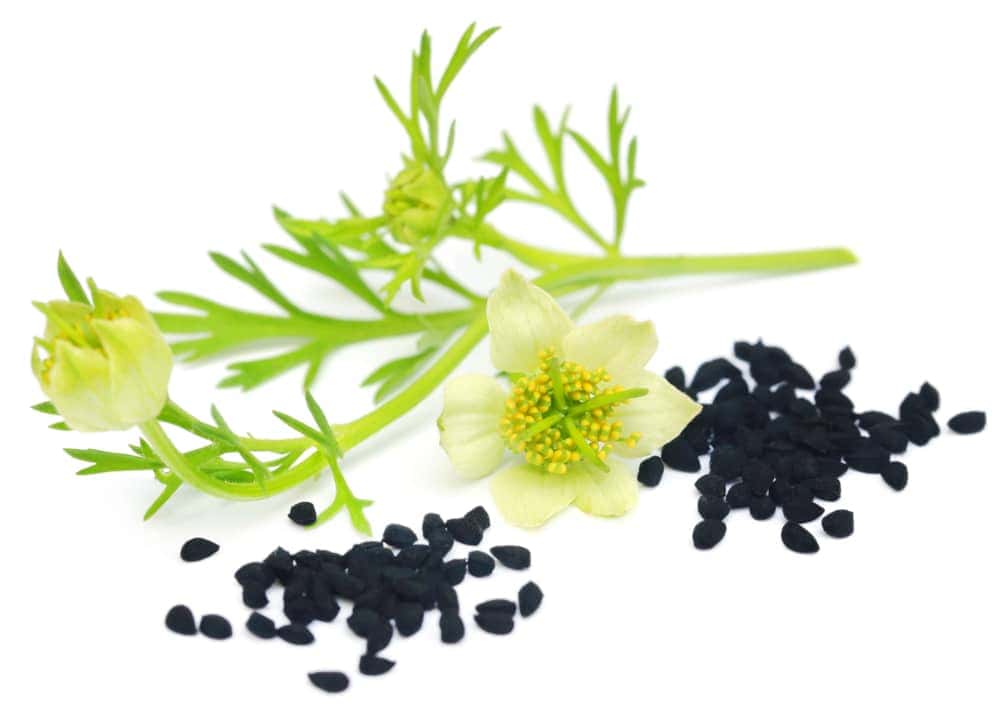
For alleviating symptoms of male menopause, recommended in the form of an easily digestible oil, growing in the wild in the Mediterranean, also cultivated in other parts of Europe, increasingly also in Poland. The small seeds of nigella (Nigella Sativa), also called black cumin, are a real treasure trove of valuable nutrients, vitamins A, B, C and E, phospholipids, flavonoids, as many as eight amino acids, salts of zinc, magnesium, potassium, selenium, sodium, calcium and iron. As for the medicinal properties of black cumin oil, it is particularly worth noting:
- raising testosterone levels to age-appropriate standards;
- antibacterial, antiviral, antiseptic, anti-allergic and anti-inflammatory effects;
- helping to maintain proper levels of LDL cholesterol in the blood;
- strengthening the functioning of the immune system;
- removal of excess free radicals from the body;
- more efficient glucose metabolism;
- increasing insulin production.
Ginseng
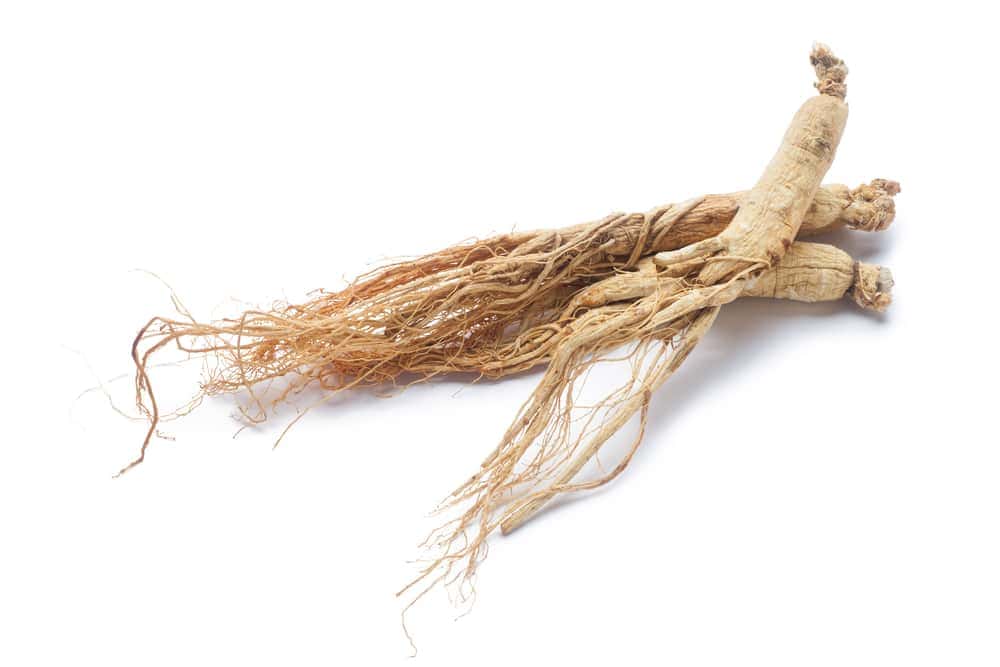
A plant whose properties are almost legendary, and whose use is found in its powdered root, an ingredient in many natural preparations and dietary supplements designed to alleviate almost all symptoms of andropause. As with the aforementioned herbs and plants, its effect also depends on its composition, and the most important in it are triterpene saponins, vitamin B1, vitamin B4 (choline), vitamin C and vitamin E. Regular supplementation of ginseng (Panax ginseng) results in:
- a reduction in the negative effects of stress;
- a perceptible improvement in well-being, physical and mental;
- enhancement of memory and concentration;
- large injections of energy necessary for daily physical activity;
- support for a weakened immune system;
- restoration of normal libido levels, thanks to an increase in testosterone production;
- absence of erection problems.
Of course, this is our subjective selection of plants and herbs that make it possible to cope with andropause, which can almost completely ruin health and reduce the comfort of life. In addition to these, you can still use, for example. peppers and modify your daily diet in such a way as to include large amounts of the above-mentioned vitamins, minerals and other valuable nutrients.
Sources:
- https://www.healthline.com/nutrition/ginseng-benefits
- https://www.healthline.com/nutrition/what-is-nigella-sativa
- https://www.healthline.com/nutrition/fenugreek
- https://www.healthline.com/nutrition/tribulus-terrestris


